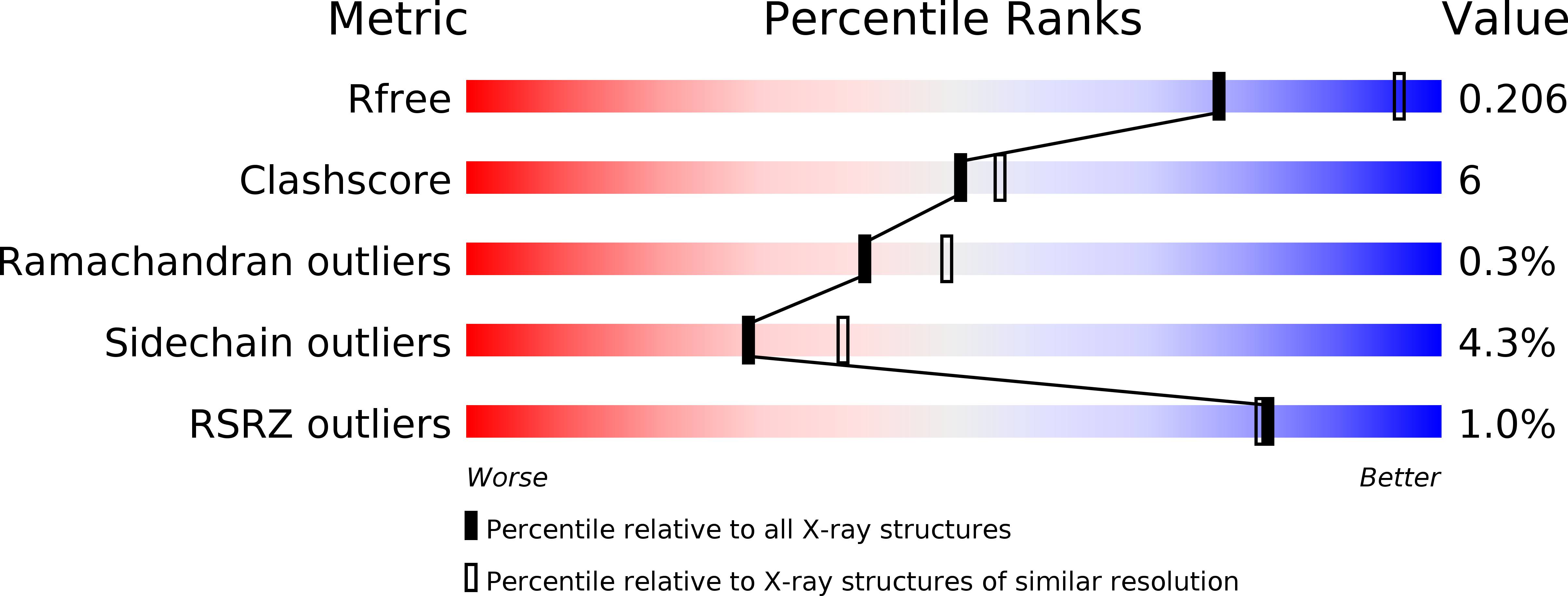Structural and kinetic bases for the metal preference of the M18 aminopeptidase from Pseudomonas aeruginosa
Nguyen, D.D., Pandian, R., Kim, D., Ha, S.C., Yoon, H.J., Kim, K.S., Yun, K.H., Kim, J.H., Kim, K.K.(2014) Biochem Biophys Res Commun 447: 101-107
- PubMed: 24704201
- DOI: https://doi.org/10.1016/j.bbrc.2014.03.109
- Primary Citation of Related Structures:
3WT4, 4NJQ, 4NJR, 4OID, 4OIW - PubMed Abstract:
The peptidases in clan MH are known as cocatalytic zinc peptidases that have two zinc ions in the active site, but their metal preference has not been rigorously investigated. In this study, the molecular basis for metal preference is provided from the structural and biochemical analyses. Kinetic studies of Pseudomonas aeruginosa aspartyl aminopeptidase (PaAP) which belongs to peptidase family M18 in clan MH revealed that its peptidase activity is dependent on Co(2+) rather than Zn(2+): the kcat (s(-1)) values of PaAP were 0.006, 5.10 and 0.43 in no-metal, Co(2+), and Zn(2+)conditions, respectively. Consistently, addition of low concentrations of Co(2+) to PaAP previously saturated with Zn(2+) greatly enhanced the enzymatic activity, suggesting that Co(2+)may be the physiologically relevant cocatalytic metal ion of PaAP. The crystal structures of PaAP complexes with Co(2+) or Zn(2+) commonly showed two metal ions in the active site coordinated with three conserved residues and a bicarbonate ion in a tetragonal geometry. However, Co(2+)- and Zn(2+)-bound structures showed no noticeable alterations relevant to differential effects of metal species, except the relative orientation of Glu-265, a general base in the active site. The characterization of mutant PaAP revealed that the first metal binding site is primarily responsible for metal preference. Similar to PaAP, Streptococcus pneumonia glutamyl aminopeptidase (SpGP), belonging to aminopeptidase family M42 in clan MH, also showed requirement for Co(2+) for maximum activity. These results proposed that clan MH peptidases might be a cocatalytic cobalt peptidase rather than a zinc-dependent peptidase.
Organizational Affiliation:
Department of Molecular Cell Biology, Samsung Biomedical Research Institute, Sungkyunkwan University School of Medicine, Suwon 440-746, Republic of Korea.















